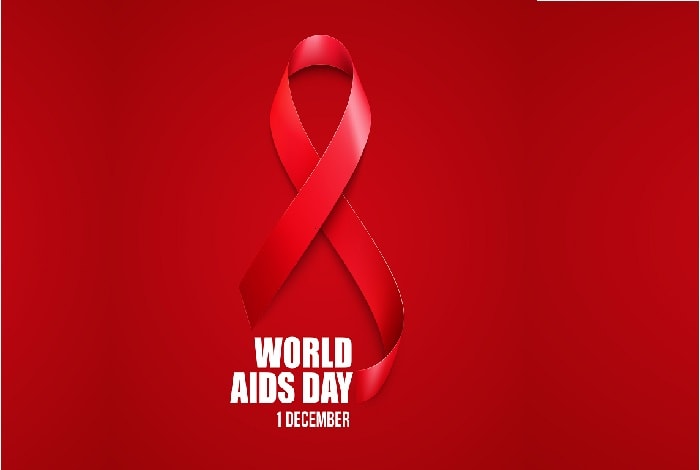I remember thinking if I could only make it through detox, I would be okay. If I could stay strong and resist my cravings—then in a week or so I would be fine. I would feel “normal” again, whatever that meant. All I needed to do was get through the withdrawals…
And part of that was true. Getting through detox and making it to the next step is crucial, but there were a few things about the first several months of sobriety I wish someone had told me about.
I had heard of PAWS (post-acute withdrawal symptoms, or withdrawal symptoms that last far beyond the detox stage), but I hadn’t heard much else about what early sobriety would look like. So, here’s 5 things I wish I had known about those first few key months that followed my decision to give up drugs for good.
1. You Feel Like A Teenager
Do you remember being a teenager? Do you remember the feeling that if you didn’t get to go to a certain party or your crush didn’t like you back, that you were literally going to DIE?
Every feeling was so intense and strong, and you had no control over it. That’s what a lot of emotions feel like in early sobriety.
Think about it: for years, whenever you had an unpleasant feeling, you controlled it.
Whether you wanted to feel numb, euphoric, or simply forget—you used drugs or alcohol to chemically control your emotions. For me, opiates were my figurative “on switch” to happiness.
I could feel how I wanted, when I wanted, and I never had to feel or process anything I didn’t want to—as long as I had drugs at my disposal.
But when you take that chemical control away after years of abuse, you are left with a brain that doesn’t really know how to regulate its self or its emotions.
It takes a little time for your body to rediscover how to cope and self-soothe, and it can be frustrating. But the good thing is, it doesn’t last.
The first few months of getting clean can feel a lot like going through puberty again, but just like puberty: you make it through and discover who you really are along the way.
2. Cross Addictions Appear Out of Nowhere
I have always struggled with OCD, mostly involving numbers and superstitions, and I self-medicated with drugs.
During my active addiction, I somehow “forgot” all of the compulsions that used to be so important and debilitating to me. And then I got sober.
Suddenly, after years of dormancy, my OCD was back. I was obsessing over odd numbers, touching every door three times, and I couldn’t believe I had gone so long and somehow survived without my beloved compulsions.
Cross addictions are common in early sobriety—we replace one addiction for another. We try to find control in any way that we can.
Eating disorders tend to rear their ugly heads during this stage, and it’s the reason many people discourage relationships, gambling, and dieting during the first year of sobriety.
3. Your Body Takes Time to Recover
Your emotions in early recovery aren’t the only thing reminiscent of puberty.
Depending on your drug of choice, you may notice that your body has changed a lot since you got clean.
Lots of people are surprised, disappointed, and embarrassed to find that they have gained weight during their first few months sober.
It’s easy to give in to vanity and lament these extra pounds, but it’s important to remember that this weight is usually a good thing. Your body was in survival mode for so long, and it wasn’t healthy.
Now that you are having regular meals and sleep, it’s going to take a few months for your body to accept that this is the new normal—and that it doesn’t have to stay in survival mode or hold on to every bite of food as if there won’t be a next.
Gaining weight is commonplace in early sobriety, and it usually means you are recovering.
4. You Forget How Bad it Was…Quick
Your disease never takes a day off. “Cunning, baffling, powerful,” only scratches the surface of addiction and alcoholism.
As children, we are taught that monsters and demons are easily identified by their horns and sharp teeth.
But addiction is scarier than that. It wears your skin, it lives in your head, and it speaks in your voice. It is always trying to find a way to trick you and, subsequently, kill you.
There were a lot of tragic circumstances involving my decision to get clean, and I remember thinking that I would never forget how horrible it was.
I would never forget the pain of everything I had done to myself and my family, and I would use that to fuel my recovery.
Lo and behold, those feelings faded. I started to forget. Had it really been that bad? Was I just being dramatic? I was more mature now and knew so much more, surely I could have a beer or two without that leading to opiates.
Luckily, I immersed myself in a 12-Step program and surrounded myself with people who reminded me quickly that it had indeed been that bad, that it would only get worse, and that whether I liked it or not—I was an addict.
5. You Don’t Have to Relapse
That brings us to the one of the most important concepts: relapsing. The phrase “relapse is a part of recovery” has become part of the cultural lexicon even outside of AA and NA.
And part of that is true. If it weren’t, there would be no way to encourage and welcome newcomers back after a rough relapse. But, the phrase is often misinterpreted.
You can always recover from a relapse, but you don’t have to relapse to recover. Many people with many, many years of sobriety stayed sober after their first attempt at getting clean.
You can ask anyone who has relapsed—I guarantee none of them will tell you it was worth it.
Reservations about recovery are natural, but it’s important to share these reservations with other people in sobriety and realize that while your feelings are real, you don’t have to act on them.
I once saw a wonderful quote at an AA meeting, and it’s something I used to remind myself of constantly, “I’ve never woken up in the morning wishing I had used the night before.”
Recovery is complex and different for everyone. But, it’s important to know that physically detoxing from substances is only the first step in the long, windy, wonderful road that is sobriety. If this list scares you, it shouldn’t, because growing pains are indicative of only one thing: you’re growing.
24/7 ADMISSION HELPLINE 888-629-6707




